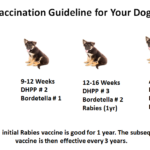Why Does My Dog Not Like Other Dogs
As pet owners, we all want our furry friends to be social and friendly towards other dogs. Unfortunately, some dogs just don’t seem to enjoy the company of their fellow canines. It can be frustrating and even embarrassing when your dog growls or acts aggressively towards other dogs while on walks or at the dog park. So why does your dog not like other dogs? There could be a variety of reasons.
Possible Reasons Why Your Dog Doesn’t Like Other Dogs
1. Lack of Socialization
Socialization is critical for puppies as it helps them learn how to interact with other dogs. If your dog missed out on this crucial period during their early development, they may not know how to behave around other dogs. This can lead to fear or aggression towards unfamiliar dogs.
2. Negative Experiences
A negative experience with another dog, such as being attacked or bullied, can cause your dog to develop a fear or dislike towards other dogs. This could happen during a walk, at the dog park, or in your backyard.
3. Protective Instincts
Some breeds have been specifically bred for protective instincts towards their family members. This can sometimes translate into protective behavior towards their owners around other dogs.
4. Health Issues
If your dog is in pain or feeling unwell, they may become more irritable and less tolerant of other dogs. Some medical conditions, such as arthritis or hip dysplasia, can also make it difficult for them to move around comfortably.
5. Age
As some dogs age, they may become less interested in playing with other dogs and prefer to relax at home instead.
How to Help Your Dog Get Along With Other Dogs
1. Work on Socialization
If you have a puppy, start socializing them as soon as possible by taking them to puppy classes and introducing them to other friendly dogs in a controlled environment. For older dogs that missed out on socialization earlier in life, it’s never too late to start. Gradually expose them to other dogs while closely supervising their interactions.
2. Avoid Negative Experiences
Try to avoid situations that could lead to negative experiences for your dog, such as crowded dog parks or off-leash areas. Always keep a close eye on your dog during interactions with other dogs and intervene if necessary.
3. Seek Professional Help
If your dog’s dislike of other dogs is causing issues in their daily life, consider seeking help from a professional trainer or behaviorist. They can work with you and your dog to address any underlying issues and create a plan for success.
4. Give Them Space
It’s okay if your dog isn’t best friends with every dog they meet. Respect their boundaries and don’t force them into uncomfortable situations. If your dog prefers to keep their distance from other dogs, give them space and find other ways to provide socialization and exercise.
Conclusion
In conclusion, there are many reasons why some dogs may not like other dogs. The important thing is to understand your dog’s behavior and work with them to address any issues that arise. With patience, training, and love, even the most antisocial dog can learn to enjoy the company of their fellow canines.



